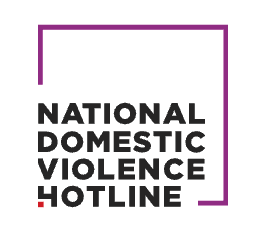Nestled among the sun-kissed landscapes of California lies a haven where minds unravel and hearts find solace – the therapist’s office.
As we navigate the labyrinth of our thoughts and emotions, seeking clarity and comfort amid life’s chaos, the compassionate guidance of a skilled therapist often lights our way.
But what happens when we turn the tables and flip the script to pose our probing questions to these guardians of mental well-being?
In this article, we delve into the intriguing world of therapy in California and explore thought-provoking questions for a therapist.
These questions for a therapist unveil the intricacies of a therapist’s profession and deeper insights into ourselves.
Join us on this introspective journey as we unlock the hidden mysteries behind those calming voices that urge us toward healing and self-discovery.

1. Therapist’s Qualifications and Experience
When seeking a therapist, one must inquire about their qualifications and experience.
One insightful question to ask is about their educational background and training.
Understanding where they received their degree and any specialized certifications can provide valuable insight into their expertise.
Another of the essential questions for a therapist is their experience working with clients facing similar issues.
A therapist’s years in practice and the specific populations they have worked with can significantly impact the effectiveness of the therapy process.

Additionally, it can be beneficial to ask about the therapeutic approaches they use in their practice.
Different therapists may employ various techniques, such as cognitive-behavioral therapy, psychoanalysis, or mindfulness-based interventions.
Inquiring about these methodologies can help you understand how a therapist would approach your unique situation and whether their style aligns with your preferences for therapy.

2. Therapy Approaches and Techniques
When seeking therapy, it is essential to understand the different approaches and techniques that therapists may use to help their clients.
One common approach is cognitive-behavioral therapy (CBT), which focuses on changing negative thought patterns and behaviors.
Through challenging beliefs and teaching new coping strategies, CBT can be effective in addressing a wide range of mental health issues.

Another popular technique used in therapy is mindfulness-based stress reduction (MBSR).
This approach involves learning how to be present at the moment and cultivate awareness of thoughts and emotions without judgment.
By practicing mindfulness, individuals can develop greater self-awareness and improve their ability to manage stress and anxiety effectively.
And that’s especially true if you are involved in anything stressful.

Before starting therapy, it’s essential to ask your therapist about their preferred approach and techniques.
It’s also helpful to inquire about potential side effects or challenges associated with the chosen method.
By being proactive and asking thoughtful questions, you can ensure that you find a therapeutic approach that best fits your needs and goals.

3. Specializations and Areas of Expertise
When seeking guidance from a therapist, it’s crucial to inquire about their specializations and areas of expertise.
Understanding a therapist’s specific focus can make a significant difference in the effectiveness of therapy sessions.
For instance, if you’re struggling with trauma, finding a therapist who specializes in trauma-focused therapies such as EMDR or CBT can offer tailored support that aligns with your needs.
On the other hand, if you’re dealing with relationship issues, seeking a therapist trained in couples counseling may be more beneficial for addressing those concerns.

Moreover, asking questions about a therapist’s expertise can also help build trust and rapport in the therapeutic relationship.
Ultimately, by clarifying your therapist’s specializations and areas of expertise, you are taking an active step towards ensuring that you receive targeted and practical support that caters to your unique needs and goals.

4. Availability and Scheduling Options
When finding the right therapist, availability, and scheduling options are crucial in ensuring a successful and consistent therapy journey.
As a client, asking questions about your therapist’s availability can help you plan and ensure that you can attend sessions regularly.
Understanding their schedule, flexibility, and potential backup plans for cancellations or emergencies can provide peace of mind and build trust in the therapeutic relationship.

By discussing these practical details upfront, both you and your therapist can work together to create a schedule that supports your mental health goals while also addressing any potential barriers that may arise.
Open communication around availability and scheduling can ultimately contribute to a more effective and impactful therapeutic experience for both parties involved.

5. Payment and Insurance Information
Many individuals often have questions for a therapist about payment and insurance coverage when considering therapy.
It’s essential to inquire about the therapist’s accepted payment methods and whether they are in-network with your insurance provider.
Understanding the cost of each session upfront can help ease any financial concerns and ensure a smooth billing process.
Additionally, exploring potential reimbursement options or sliding scale fees with the therapist can make therapy more accessible for those facing financial constraints.

Transparent communication about payment and insurance information is crucial when starting therapy.
Don’t hesitate to ask any questions for a therapist you may have regarding costs, insurance coverage, or alternative payment arrangements.
Addressing these practical matters at the outset lets you focus on your therapeutic journey without worrying about financial logistics.
Ultimately, balancing affordability and quality care is critical to getting the most out of your therapy experience.

6. Confidentiality and Privacy Policies
Many individuals may have concerns about confidentiality and privacy policies when seeking therapy.
Asking questions for a therapist, such as how they store client records, what measures are in place to protect your data, and under what circumstances they might disclose information, can help you better understand their commitment to confidentiality.

In addition to understanding the therapist’s approach to confidentiality, it is also essential for clients to consider their own boundaries and comfort levels regarding privacy.
Being open with your therapist about any specific concerns or preferences related to sharing personal information can help establish a trusting and respectful therapeutic relationship.
Understanding confidentiality and privacy policies can contribute significantly to feeling secure and supported throughout therapy.

It is worth noting that while therapists are legally mandated to uphold client confidentiality, there are certain exceptions where law or ethical guidelines require them to disclose information without client consent.
By openly discussing these scenarios with your therapist and mutually understanding expectations around confidentiality, both parties can work together effectively to achieve therapeutic goals while respecting individual privacy rights.

Questions For a Therapist: Don’t Be Afraid to Ask
Finding the right therapist in California can be daunting.
But by asking the right questions for a therapist and researching, you can find a professional who meets your needs.
It is essential to inquire about their experience, qualifications, and approach to therapy to ensure a good fit.
Additionally, discussing logistical details such as fees, insurance coverage, and appointment availability can help set expectations and avoid surprises.
Remember that therapy is a collaborative process, so don’t hesitate to communicate openly with your therapist about your goals and concerns.
Take the time to find a therapist who makes you feel comfortable and supported in your journey towards mental health and well-being.





























